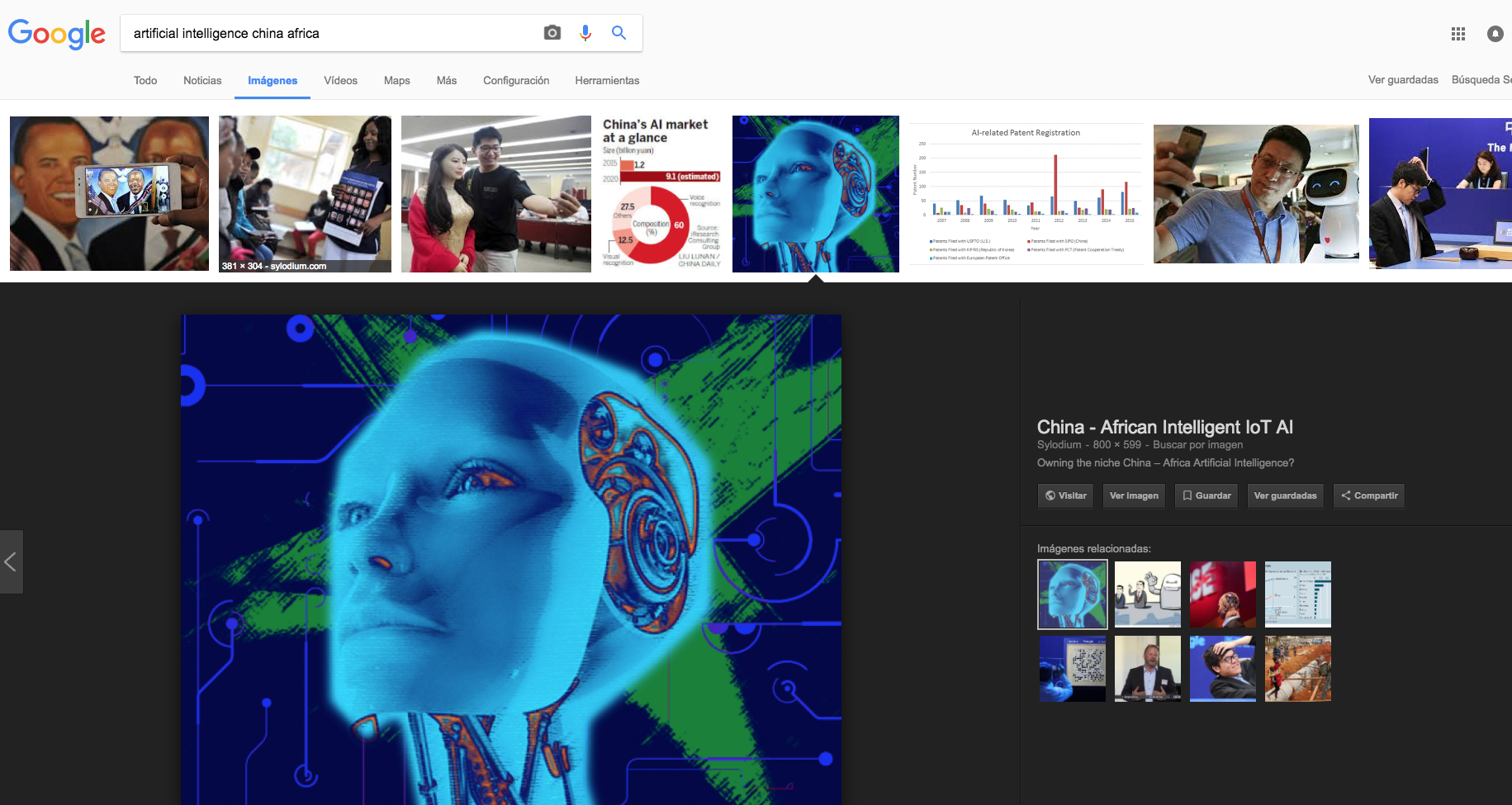Start your Artificial Intelligence Business from China to Africa.
Start your AI business at China – Africa or USA – Africa.
Starting your own AI business between China or USA towards Africa?
Africa and the Middle East, are beginning to use artificial intelligence to address systemic problems holding back growth.
Being new knowledge and new skills the Industry 4.0
Could Africa reduce the gap with West?
Could Africa take China as an example?
do you have any idea about AI Business to spread in your African country?
We will protect your idea if you don’t have any patent in Sylodium system to make money together with us.
In Sylodium you can choose niches as Shanghai – West Africa AI, California – Nigeria AI APPs, Hong Kong – South Africa reasonable AI, New York – East Africa Artificial Intelligence games, Florida - North Africa Bots, etc to dominate them virtually to test real possibilites to start your own business offering your services or ideas to investor and/or companies related.
Are you in Industry 4.0 business from China or USA to Africa?
Our logical business system, allows you to segment your target markets to be seen, and dominate the bilateral trade niches about AI, IoT, IIoT, APPS, and any reasonable tech 4.0 from China or USA to Africa you choose.
"Your import-export business in Internet's guts"
The most impactful AI research isn’t happening in Silicon Valley
New from QUARTZ
while the US, Canada, China, and other world powers disproportionately enjoy the benefits of technological advancements, a shift is starting to occur. Researchers in the developing world, like Africa and the Middle East, are beginning to use artificial intelligence to address systemic problems holding back growth. At this week’s Neural Information Processing Systems conference, the AI industry’s biggest, experts see opportunity to use the technology to fill gaps in healthcare, agriculture, and finance.
Ernest Mwebaze, a lecturer at Makerere University in Uganada and speaker at the NIPS workshop on AI in the developing world, is using machine learning to help farmers detect disease in crops using smartphones. The project, called Mcrops, shows farmers whether their cassava plants are infected with hard-to-spot diseases after analyzing a photo taken with a smartphone.
Some farmers are illiterate, so the app has to be intuitive and include pictures. Access to technology is also limited, and while cassava is often farmed by women more men own phones.

These are problems not often considered in the developed world. Coupled with the technological constraints of unreliable power and internet in some parts of Africa, as well as a lack of data that Silicon Valley tech companies have amassed on their customers, AI researchers in Africa need to think differently about realistic solutions to problems.
While datasets are typically smaller in Africa, according to experts who spoke to Quartz, they are more accessible. Mwebaze says, compared to the US, it’s easier to obtain patient data from medical facilities in parts of Africa to train machine-learning models for healthcare. This is a stark difference to the norm in developed countries like the US, UK, and Canada, where data protection laws installed to protect individual privacy complicate the process of accessing that sensitive data.
IBM Kenya is working with mobile payments from the massively popular mobile money transfer service M-Pesa. Skyler Speakman, a scientist at IBM Kenya, is working to build a credit scoring system that works exclusively off a person’s M-Pesa transactions. The technology would give banks more confidence to give small loans (about $50) to people, Speakman says.
Artificial Intelligence - 21/02/2018
Artificial Intelligence - 07/02/2018
Artificial Intelligence - 15/12/2017
Artificial Intelligence - 27/11/2017

